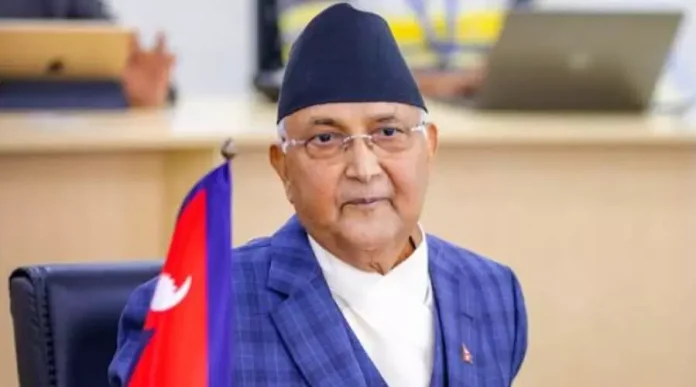Kathmandu, September 9: Nepal plunged into political turmoil on Tuesday after Prime Minister KP Sharma Oli resigned in the wake of violent anti-corruption protests that left at least 19 people dead and more than 300 injured.
Oli submitted his resignation letter to President Ram Chandra Poudel, citing the “abnormal situation” in the country and invoking Article 77 (1) of the constitution to pave the way for a constitutional resolution. His exit came just hours after enraged demonstrators stormed his office in Kathmandu and torched his private residence in Balkot, Bhaktapur.
The Gen-Z-led protests were triggered by the government’s controversial nationwide ban on social media platforms, widely condemned as an attack on free expression. Although the ban was revoked late Monday night, the protests swelled, with demonstrators demanding accountability for corruption and state repression.
By Tuesday, furious crowds stormed the Parliament building at Baneshwor, setting it ablaze, and broke into the Singh Durbar administrative complex, torching its main gate. Homes of senior leaders, including former prime ministers Sher Bahadur Deuba and Pushpa Kamal Dahal, as well as ruling coalition ministers, were attacked and set on fire. Offices of both the ruling CPN (UML) and the opposition Nepali Congress were vandalised and torched, while government buildings across several districts were also targeted.
The unrest has shaken Nepal’s political establishment, with ministers from the ruling coalition — including those handling Home, Agriculture, Health, and Youth portfolios — resigning in protest against the use of force on demonstrators. Lawmakers from the Rastriya Swatantra Party, the fourth-largest party, resigned en masse, demanding an interim government.
General secretaries of the Nepali Congress, Gagan Thapa and Bishwo Prakash Sharma, publicly urged Oli to step down, declaring that the seven-point agreement underpinning the current coalition had collapsed.
Videos of Oli’s house in flames went viral on social media, fuelling further anger against the government. District officials in Lalitpur and Bhaktapur confirmed widespread vandalism but said they had refrained from ordering police to open fire on protesters.
Oli, who was elected in July 2024 through a consensus with the Nepali Congress, exits office amid Nepal’s gravest political crisis in years. Reports suggest that Kathmandu mayor Balen Shah could be tapped as interim prime minister, though no formal decision has been announced.

